Alone Together
An argument for living in a big pile.
Thinking about boredom led me to thinking about yawning, a very under-researched phenomena, according to Robert R. Provine who refers to this as a ‘testament for undervaluing the familiar.’ I got the book ‘Curious Behavior’ out of the library, who’s other familiar categories include:
So all future substacks are covered. But for now, let’s continue with yawning:
Yawning might be a herd instinct. Theories suggest that the yawn serves to synchronize mood in gregarious animals, similar to howling in a wolf pack. It signals fatigue among members of a group in order to synchronize sleeping patterns and periods.
Exhibit A:
Yawning is also thought to increase group vigilance so we can be better prepared for incoming threats to our wolf pack. My wolf pack, however, is quite small. I am an introvert (INFJ, thank you for asking), and my preferred state is ornamental hermit, or:
As yawns regulate everyones bedtime, people co-regulate each other:
Your nervous system meets my nervous system, and a new nervous system is created between us.
Summer Camp was my wolf pack, and since wrapping I’ve been working mostly in solitude. As ornamental hermit, I thought this was what I wanted, but I quickly overindulged this urge and now I spend all day haunting my house. I once saw a reddit that was introverts fantasizing about how they’d like to be out in the world - it was mostly reading in libraries where people whispered nearby (ideal!). My fantasy existence is friends fussing about in a house (preferably in Vermont) while I fuss about as well - no pressure to talk to each other but option to have a nice cup of tea if you’re both feeling it. I love this conversation between Krista Tippet and Maira Kalman, especially when they reference the idea of “alone together”
I spoke to Ann Hamilton a couple of years ago, and she used this phrase: "alone, together." I think that's the other thing. It's different from being at a concert or a performance, where you're having a communal, collective experience, because it's both, in a museum. You're having a very personal meander, and what you're paying attention to, you're choosing, and yet you are not alone.
This week I tried to get a whiff of this feeling by exploring what was on offer in my community.
First, I got motivated:
Robert Putnam and Shaylyn Romney Garretton wrote a great book called ‘The Upswing’ an exploration of the ‘I We I’ curve. It also introduced me to a great internet feature where you can see when words first came into existence and track their popularity. My name was very popular in 1661.
I got back in touch with the ethos of solar punk (high recommend the PDF linked). It is like the counter concept to cyber punk, telling uplifting sci fi narratives about a climate forward future. My favourite concept within it is the idea of everyone growing vegetables in their gardens and then swapping produce at a farm stand at the end of the street.
There is a great episode of How to Save a Planet where they say one of the best things you can do to prepare for disaster is to bring your neighbors a basket of muffins.
My craving for community sometimes feels adjacent to homesickness. I highly recommend this TED conversation on the history of human emotions, where Tiffany Watt Smith talks about how people used to die from homesickness:
“In the late 17th century in the Swiss university town of Basel, a dedicated student living some 60 miles away from home stopped turning up to his lectures. And his friends come to visit, and they find him dejected and feverish, having heart palpitations, strange sores breaking out on his body. Doctors are called, and they think it's so serious that prayers are said for him in the local church. And it's only really when they're preparing to return this young man home so that he can die that they realize what's going on. Because once they lift him onto the stretcher, his breathing becomes less labored. By the time he's got to the gates of his hometown, he's almost entirely recovered. And that's when they realize that he's been suffering from a very powerful form of homesickness. Well in 1688, a young doctor, Yohannes Hoffa, heard of this case and others like it and christened the illness nostalgia. The last person to die from nostalgia was an American soldier fighting during the First World War in France. How is it possible that you could die from nostalgia less than a hundred years ago? But today, not only does the word mean something different, a sickening for a lost time, rather than a lost place. But homesickness itself is seen as less serious. This change seems to have happened in the early 20th century but why? Was it the invention of telephones or the expansion of the railways? Was it perhaps the coming of modernity with its celebration of restlessness and travel and progress that made sickening for the familiar seem rather unambitious? You and I inherit that massive transformation in values, and it's one reason why we might not feel homesickness today as acutely as we used to.”
I learnt from a friend about how urban planners are working on developing 20 minute cities in a bid to improve mental health and sustainability, and I decided to 20 minute my own city, going to things close to my house.
I attended a life drawing class (it was circus themed):
A group gymnastics class, because moving in sync creates surprising social bonds - Bottlenose dolphins arc through the water in unison, and Angela Trimbur hosts dance classes in NYC / LA / Online.
I worked communally with friends. Zohar Atkins had a great substack this week about auto didacticism (learning on ones own) vs hereto didacticism (leaning from others). I found a balance of both was what worked best for me, and got a kick out of this rather poetic quote:
Talent comes in clusters. Learning on your own not only feels lonely, but is inefficient—who can you share your knowledge with other than “the dead” (Chesterton) or the “coming ones” (Heidegger).
(to be fair, when I am alone I do share my knowledge with the dead, commonly chitchatting to deceased family members as I roam around my house).
When I felt like I wanted lighter company, I called a friend (though this may seem common place, this is outside of my comfort zone).
I read ‘A Diary of A Solitude’ by May Sarton this week and loved this extract:
To keep on living I could recall the time
When, if only over the telephones,
We became lights and went seeking
One another, and were answered by other lights,
And invisible people speaking.
And finally I had a friendship bracelet making party. Last year I committed to not buying any new clothes, and tried to knit my own sweater from scratch. Truly my proudest achievement of last year was finishing that goddamn sweater. It made me very appreciative of the slow fashion movement and gave me have a new found respect for all my existing sweaters.
Friendship bracelets felt similar - not only did it feel similar to knitting in it’s process, but it also took FOREVER. During that time I talked to the person I was making the friendship bracelet for about death, families, rituals, whether we believed in ghosts etc. I also spilled tequila on it, and when it was finish, it truly was a record of our friendship. In fact I think it would make much more sense if instead of giving someone an engagement ring, you gave them a friendship bracelet. Also are friendships witchcraft?
All in this friendship bracelet took me 6 HOURS. Totally worth it though - I mean look at it, it’s gorgeous.
So I know what you’re thinking - Julia - results? Hows your social hangover? Substack babies - I never had one! I left this week feeling more in touch with my neighbours, my friends and my community, I got to be around warm moving bodies, and because I was doing purposeful activities I never felt that introverted craving to go home. I felt good when I was out and about because I wasn’t making a huge dent in the eco system and I was also a part of the ecosystem. My time alone also felt more precious and less… eternal.
I close with one of my favourite poems about hanging out:
For those who have been asking, the Hibernation print is now available as an archival giclee print in my shop in 8” x 10” and 16”x 20”.
Let me know in the comments any and all your thoughts - about being an ornamental hermit, about how you like to exist in the world, your favourite muffin recipe etc!



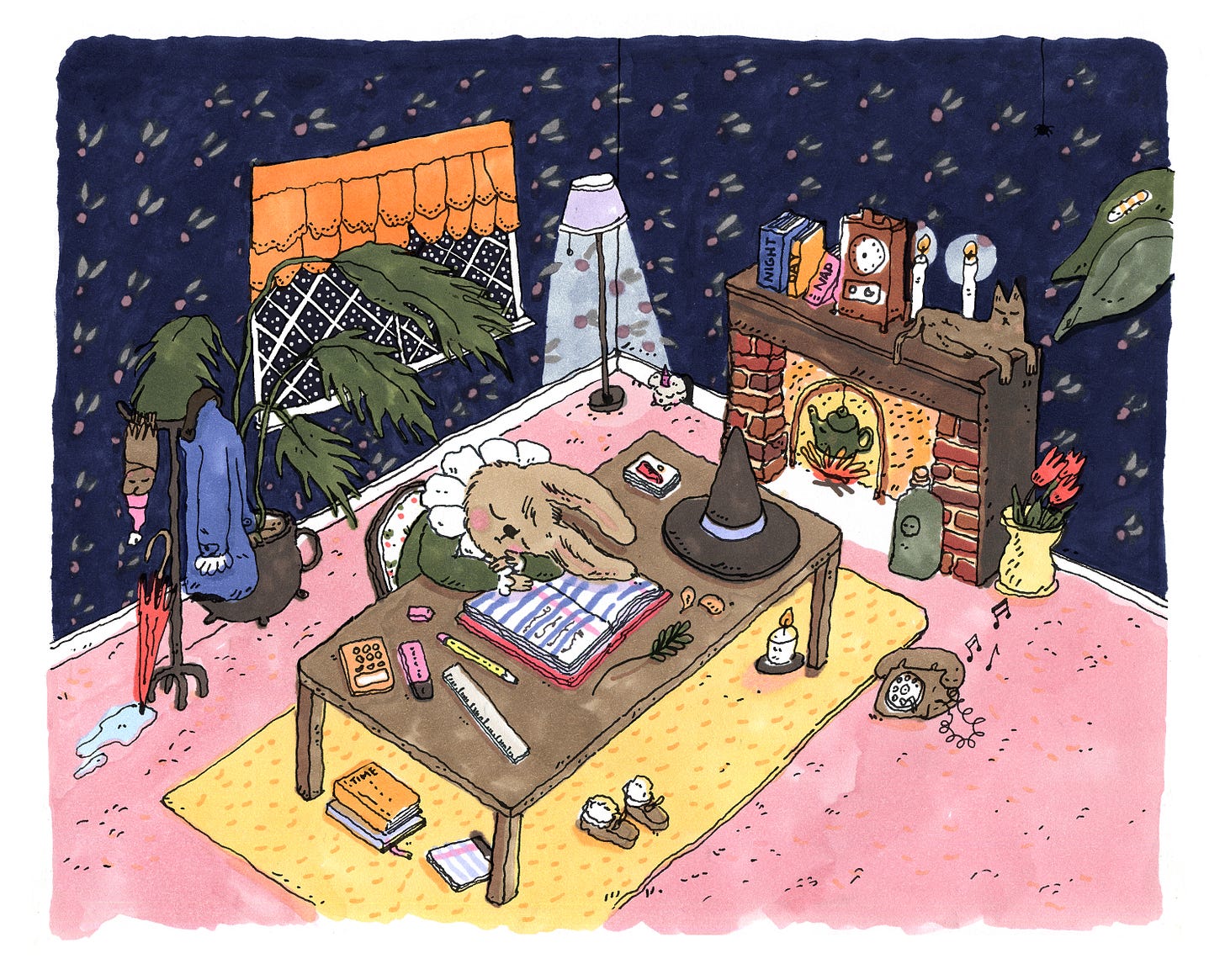

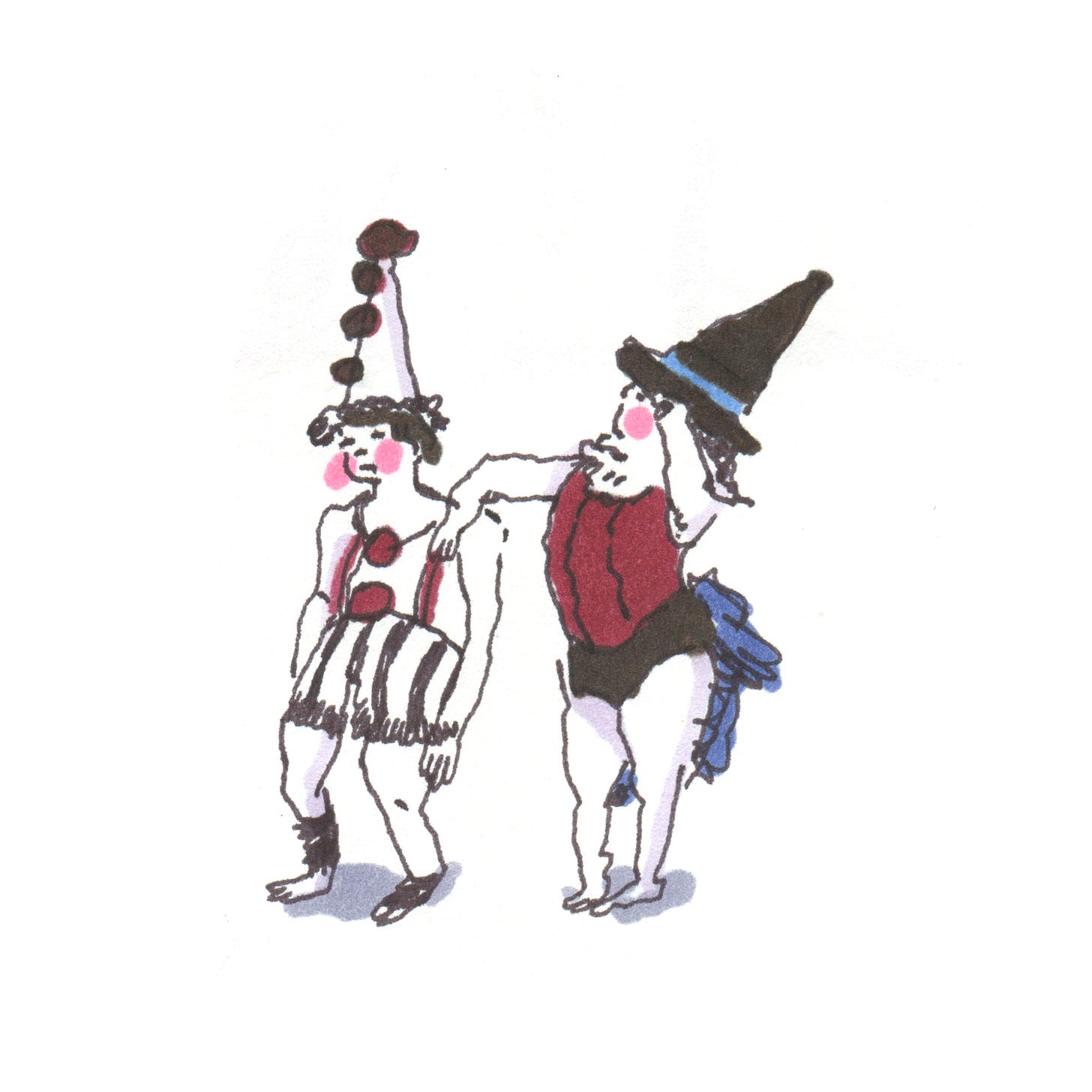
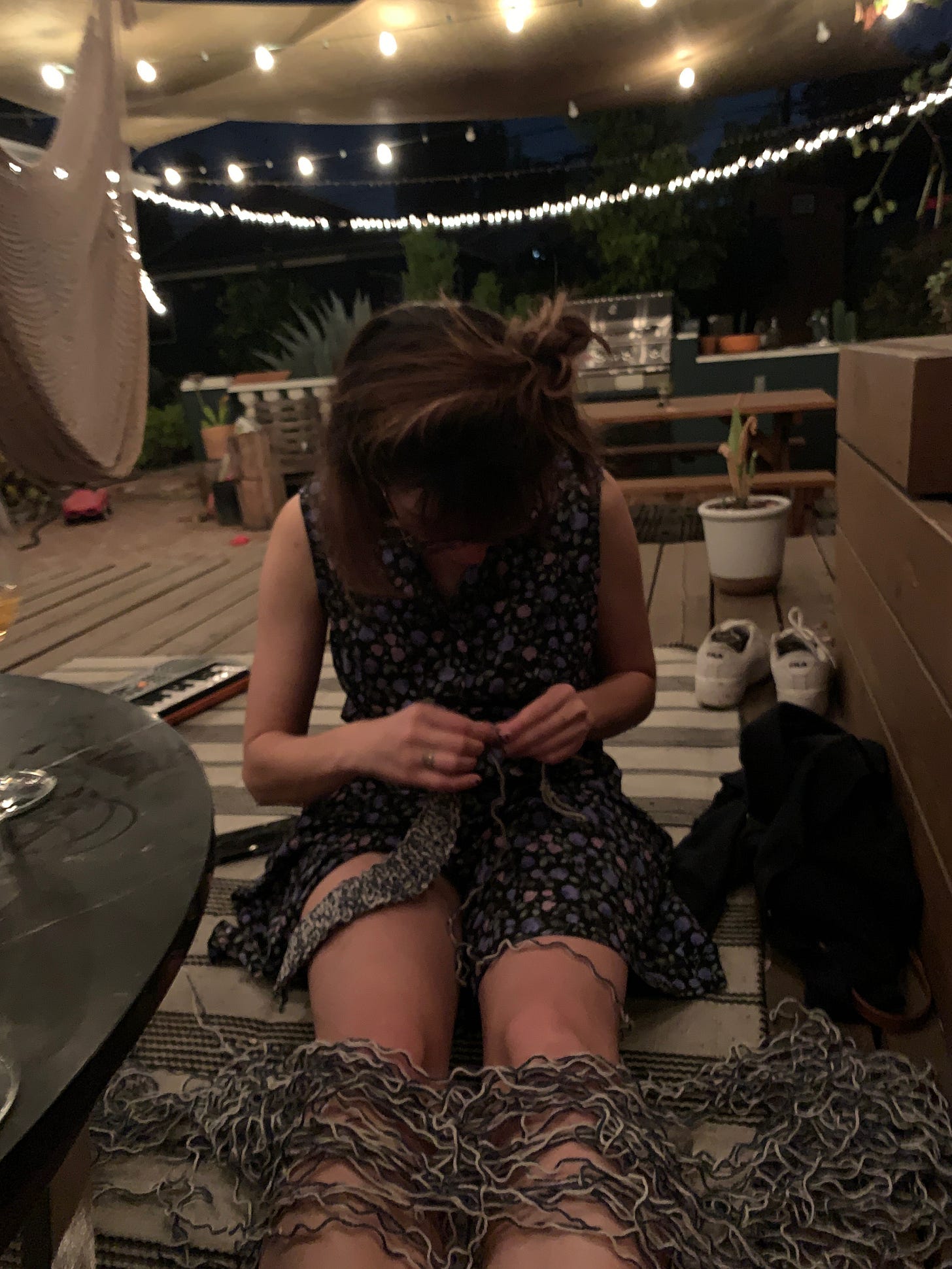
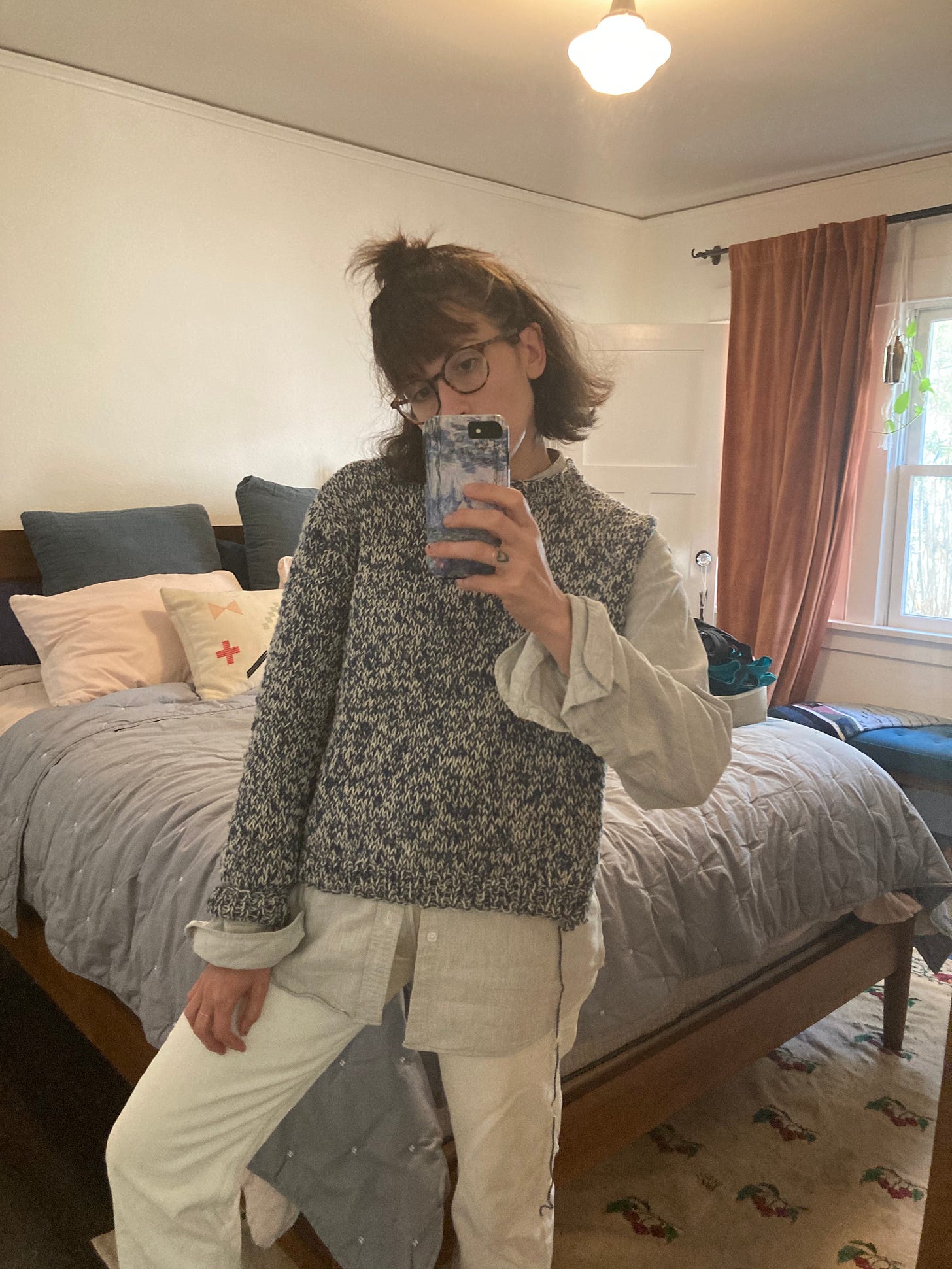
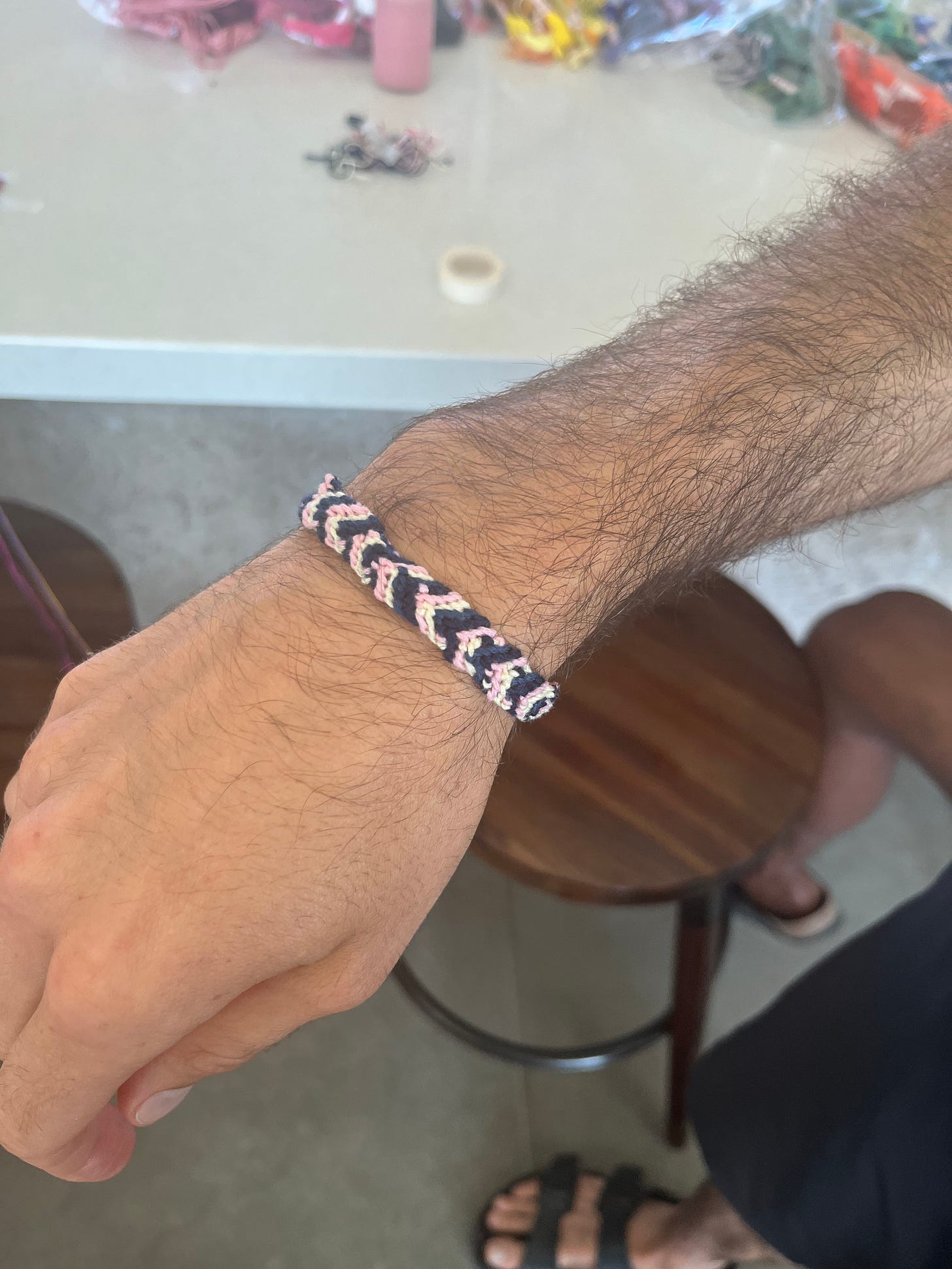

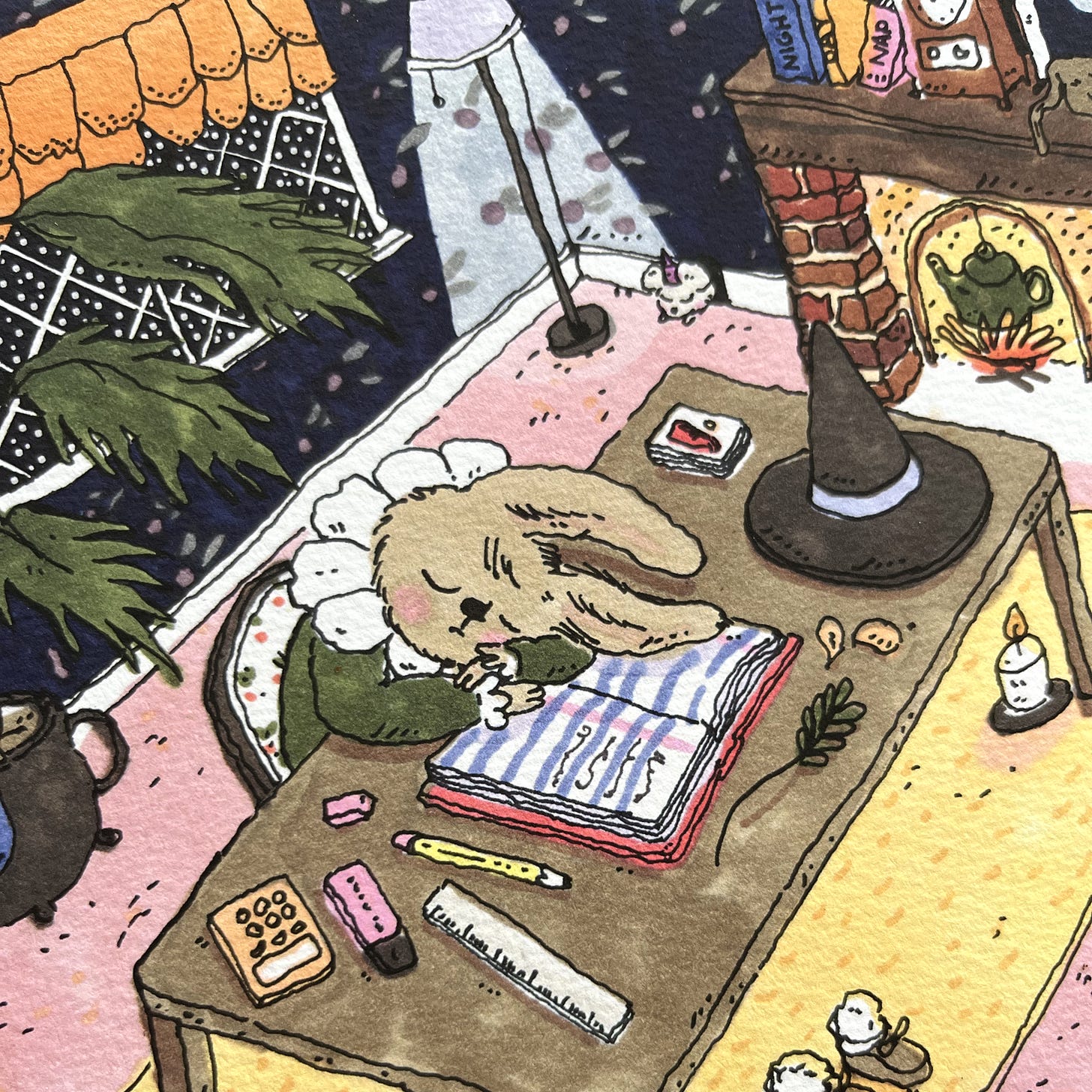
Really liked this update and your drawings. When I read about your experiences and the way you interact with your community and those around you, it makes me think that maybe it's not the world that is rotten to the core, but that it's just that I'm on the wrong part of it. Please continue making this world better with your art, in any form it takes.
This was so lovely to read.